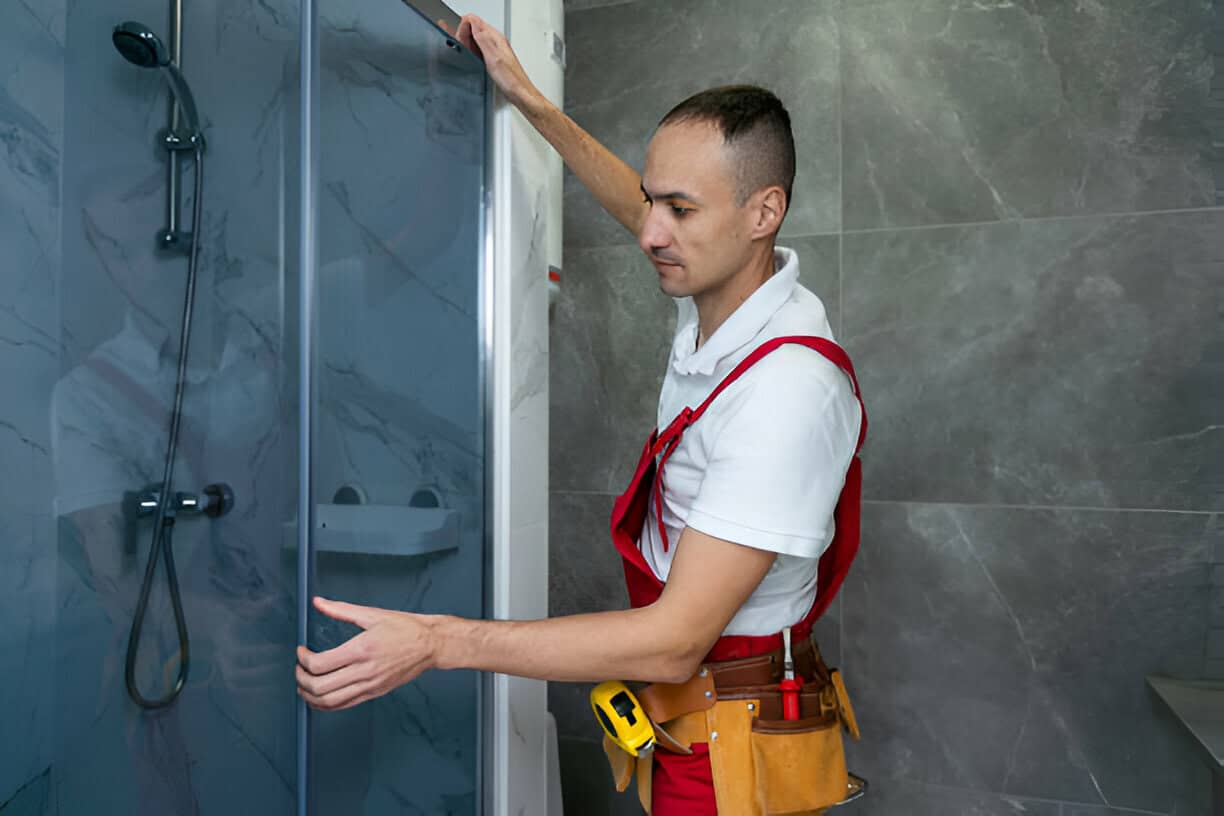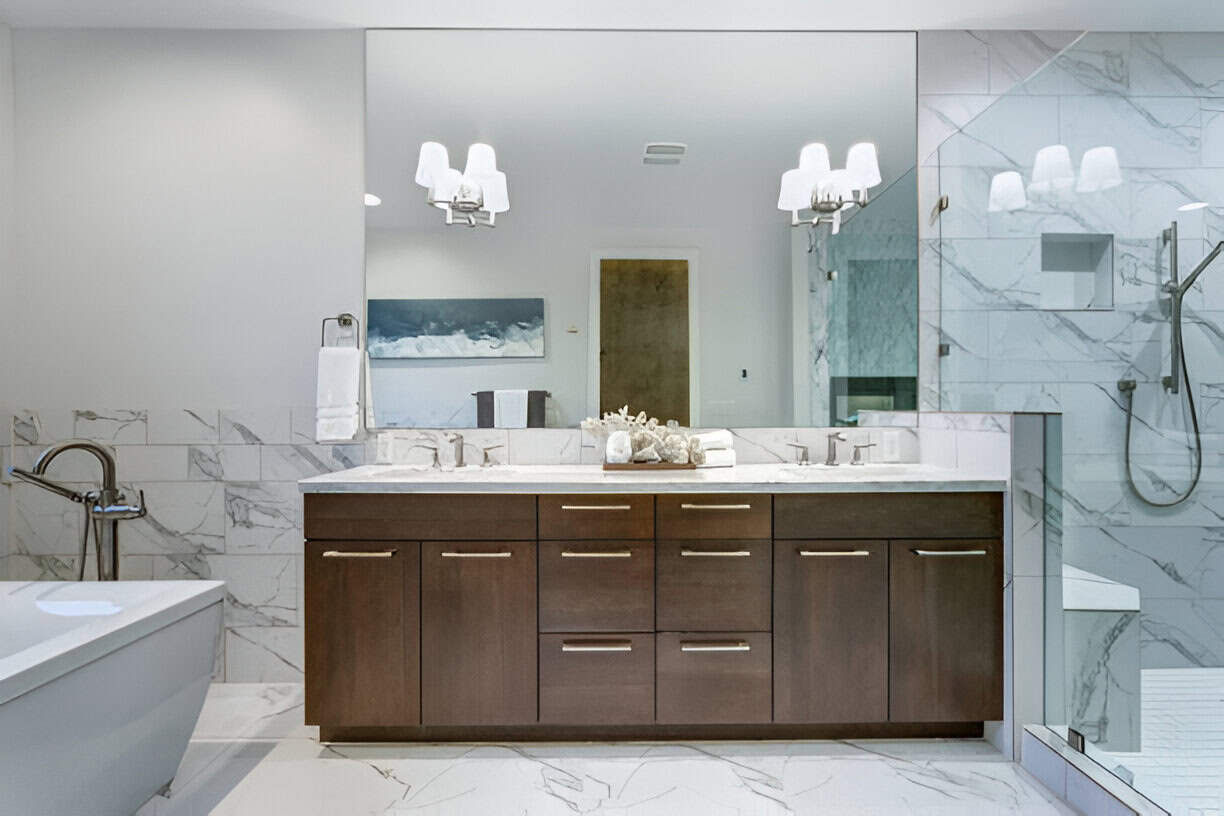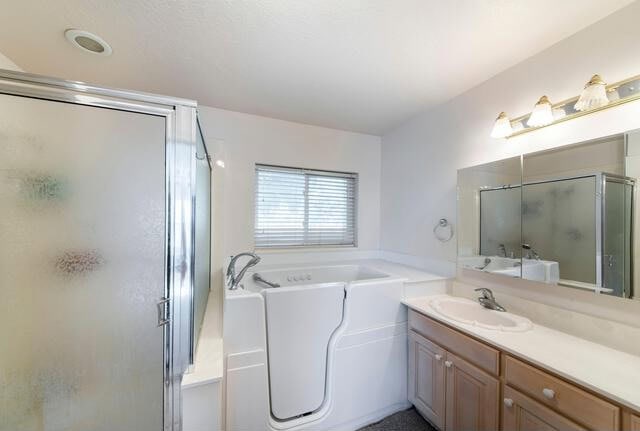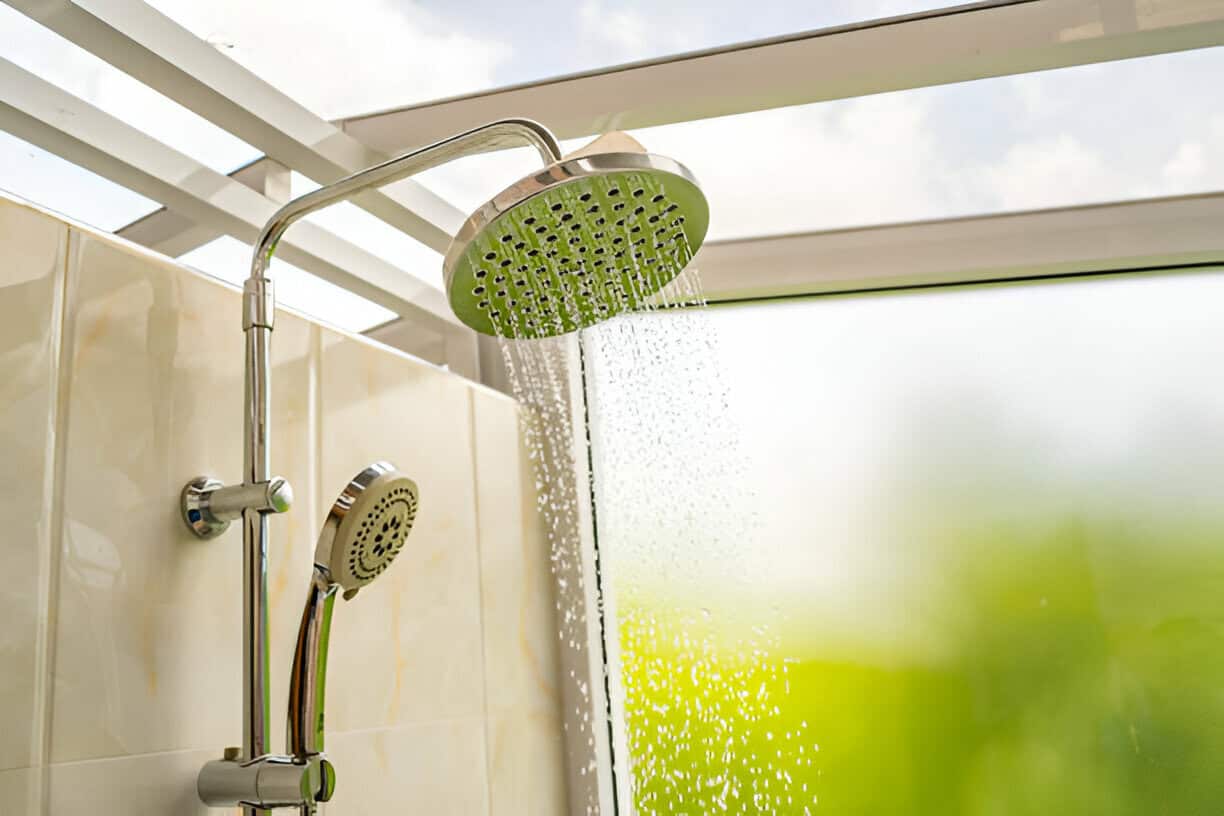The decision to convert a bathtub into a shower is a major undertaking that many homeowners may consider at some point. In this post, we’ll go over the benefits and drawbacks of converting your bathroom tub to a shower, so you can make an informed decision about this type of bathroom renovation project.
At Reeves Remodeling, we take great pleasure in our knowledge and highly talented team outfitted with the most recent tools and techniques needed to quickly and beautifully build a bathroom space.
Pros of Converting Your Tub to a Shower:
The stand-up shower stall has become a popular choice among homeowners for several reasons:
1. Enhanced Accessibility:
Perhaps the most significant advantage of a tub-to-shower conversion is enhanced accessibility. Showers are more accessible than a traditional bathtub. A shower is convenient for people with mobility challenges or those who want to age in place.
2. Modern Aesthetics
When paired with a beautifully designed shower floor, shower head or grab bars, walk-in showers frequently convey a sleek, contemporary appearance. Tiled shower walls and flooring can be made from various materials, including ceramic tile or natural stone, to fit the style of your bathroom and give it a clean, modern appearance.
3. Space Optimization
Switching from a tub to a walk-in shower can create more usable floor space in smaller bathrooms, giving the area more open air. Particularly in small-space dwellings, this optimization is advantageous. This is especially useful in smaller bathrooms, where optimizing space is essential for a more open and effective style.
4. Easy Maintenance
Showers are generally easier to clean than bathtubs. Tiled walls in the and floorsin the bathroom are less prone to grime and mold buildup, and the absence of standing water around the bathtub can simplify your cleaning routine. This is especially true with just a shower.
5. Efficient Water Usage
A walk-in shower is typically more water-efficient than bathtubs. If you’re concerned about the environment or want to minimize your water consumption, a shower conversion can help you achieve these goals, especially when combined with water-efficient fixtures.
While converting a tub to a shower may not appeal to every homebuyer, it can usually add value to your home. However, it’s essential to ensure that you have at least one bathtub in your home, as many people prefer to have one for various purposes, such as bathing children or soaking.
Factors to Consider:
Here are some crucial factors to weigh when you want to convert your old tub to a new shower:
1. Total Cost
Bathroom remodelling generally cost depending on several factors, including the materials used, hiring a plumber, and additional features like a shower door. Be sure to budget for materials and labor costs to save money.
2. Plumbing Work
Converting a tub to a shower often involves reconfiguring the plumbing, which can increase the overall cost. Understanding the extent of the work required is vital.
3. Home’s Resale Value
Consider your local real estate market. While a shower can add value to your home, some regions may prefer at least one tub in a residence. Removing your only bathtub from your bathroom may limit your pool of potential buyers and lead to an additional cost.
4. Aesthetic Fit
Consider how the tub-to-shower conversion will complement your bathroom’s overall aesthetic and layout. Ensure it blends seamlessly with the existing design.
The Final Decision
If you value accessibility, modern aesthetics, and potential cost savings, a tub-to-shower conversion may be an excellent choice.
To make an informed decision, consult professionals like Reeves Remodeling. We can help you make a well-thought-out decision to ensure that your bathroom project meets your expectations and adds value to your home.









